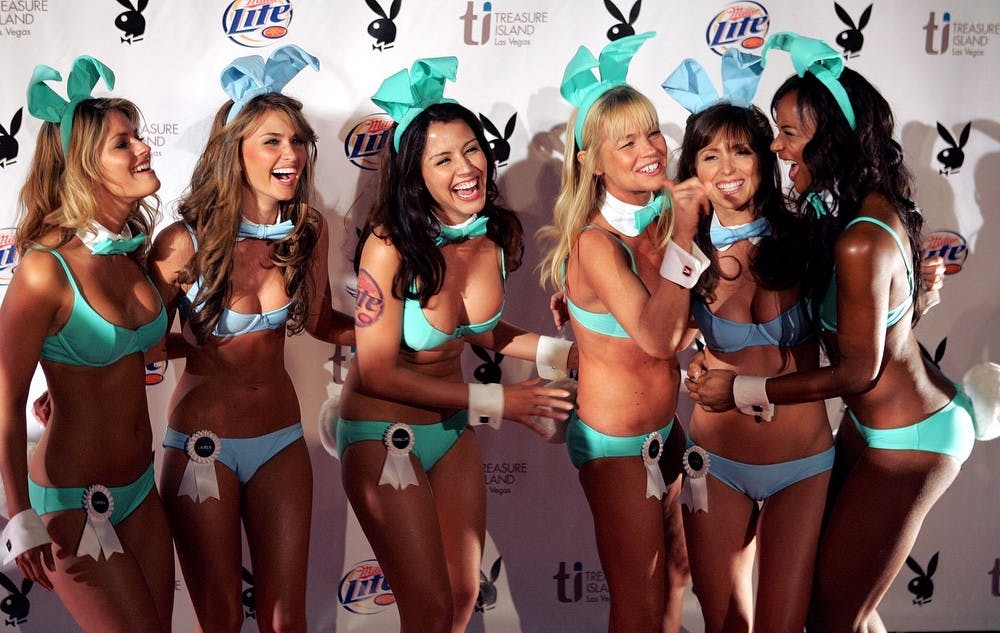The pornographic industry once represented a generation of lusty adolescent males, peeking at pictures of naked women under their sheets at night. As of now, nothing has changed. People view pornographic images online and in print, from manga to movies, on the daily. It’s a $97 billion industry, with $10 to 12 billion in the U.S. alone. Playboy, a large contributor to the industry, has been known to sell 7 million copies in one month. The mindset in the media, however, has changed.
Many argue that the drinking age should be reduced in the U.S., believing that the number of alcohol-related deaths would decrease if the act of drinking was not prohibited to the youth. To pursue the forbidden is a mentality engrained in human nature.
Sex in media represents the same concept. Nudity can be found nearly anywhere on the web, including various social media sites such as Tumblr and Pinterest, where nudity is considered an art form. The younger generation no longer desires to see nude women or men; they can find that anywhere.
Playboy magazine was launched in 1953, with Marilyn Monroe, a common sex symbol at the time, on the cover. It proceeded to gain popularity over time.
The time in which it was released represents a "Mad Men" era in which, though still perceived as taboo, sex and drugs became more prevalent in society. This cultural shift only gained momentum over time. In the 1970s, the concept of “free love” and the recreational use of drugs was emphasized by the counterculture movement of the time: the hippies. During this time, an estimated one-fourth of college men bought Playboy magazines.
Internet follows suit with Playboy and removes all nudity from all websites everywhere forever and ever. Feminists rejoice. @absrdNEWS
— Big Enuff (@BigEnuff) October 13, 2015
There is no denying that the magazine has maintained its popularity throughout the years, so one must question why it should change now.This question can be answered by both the shift in the mindset of society as well as the accessibility of sexualized media. Instead of representing a counterculture movement, nudity in media represents culture itself, especially for the younger generations.
Sex in the media is no longer considered taboo; therefore, Playboy, which served as the primary source of sex in media, is no longer relevant. In order to maintain relevance, it needed to change its focus.
According to CNN, Playboy started to change focus as well as the intended demographic of the magazine by re-launching its website in 2014 with a “safe for work” strategy. This boosted the number of visitors by 258 percent. Additionally, it reduced the average age of the viewer from 47-to-30-years-old. Making its intention official, in March of 2015, the magazine decided to exclude all nudity from the magazine.
This illustrates the fact that the younger generation is less concerned with nudity and promiscuous images.
This is why Playboy is focusing on desexualizing media and placing the focus on branding and keeping the Playboy name alive. According to Channel 4 News, instead of going for the shock factor, the magazine is aiming to create a cleaner look, featuring models in images that are a "little more accessible, a little more intimate."
This shift in mentality is occurring elsewhere as well. Facebook and Instagram prohibit full nudity in spite of the “Free the Nipple” campaign across social media platforms. Nudity is unnecessary on these sites, and most people agree.
The fluctuation in the acceptance of nudity in media is accounted for by a shift in the public mentality. Because it is so accessible, fewer people want to see it.
Related Links:
'Don Jon' represents society's porn problem
Desexualized ta-tas mean loss of femininity
Reach the columnist at ghirneis@asu.edu or follow @ghirneise1 on Twitter.
Editor’s note: The opinions presented in this column are the author’s and do not imply any endorsement from The State Press or its editors.
Want to join the conversation? Send an email to opiniondesk.statepress@gmail.com. Keep letters under 300 words and be sure to include your university affiliation. Anonymity will not be granted.
Like The State Press on Facebook and follow @statepress on Twitter.




